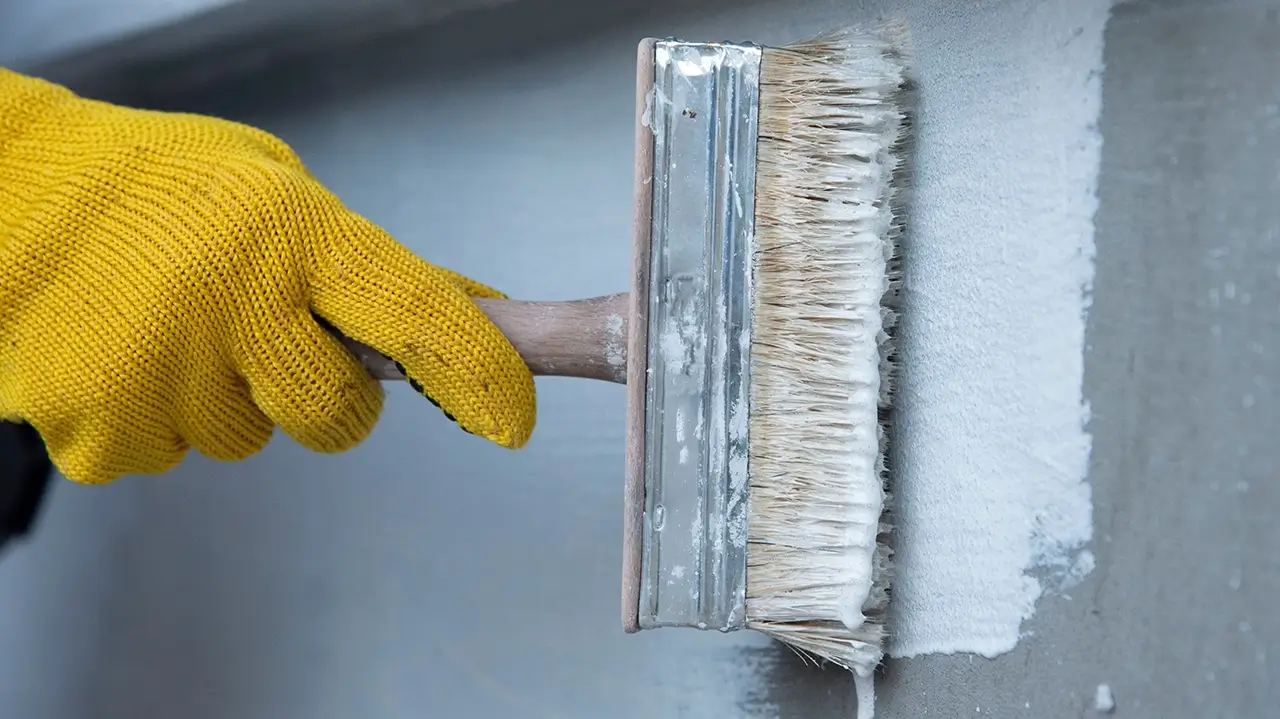Elastomer Solutions for waterproofing
Our Hybrid Co-Polymer (ProHCPTM) and FlexiCreteTM solutions make it easier than ever to ensure your assets are protected from water, chemicals, and harsh weather.

Explore our range of versatile Elastomers
Our extensive collection of elastomers, includes silicones, rubber-based coatings, and more. These versatile materials offer an all-purpose solution to waterproofing, protecting industrial equipment, and aiding in construction projects.

Discover the Application Process for Elastomers

Professional Application by Approved Applicators
Having one of our Approved Applicators do the application for you, means that you will get a professional finish that will offer years of protection.

DIY Application for Hands-On Customers
Our Elastomers are designed to be easy to apply. Step-by-step instructions for applying our coating means you can also achieve a quality result.

Get Started with Your Coating System Today
Ready to start that overdue project? Speak to our Sales Team to guide you to the best choice for the job.

Join our Growing Team of Approved Applicators
Sign Up to Become an Approved PolyZilla Applicator.
Explore our extensive range of elastomers
Our range of flexibile, yet strong elastomer coatings allow for truly versatile use-cases. Our ProHCPTM Series offers waterproofing like no other, and FlexiCreteTM will ensure that your construction projects run smoothly.


Textured coating
The ProHCPTM 100 is a flexible waterproofing membrane infused with rubber crumbs for a durable, textured finish. It is ideally painted on with a brush, and applied to surfaces that need extra grip and resilience.
Smooth coating
The ProHCPTM 200 coating uses the same trusted formula as the ProHCPTM 100 coat, but without the rubber crumbs for a smooth, even finish. This coating is perfect for detail work, or where a clean look is preferred.
Crack Filler
The ProHCPTM 300 UV resistant hybrid co-polymer emulsion. Its seamless, flexible formulation bonds directly to surfaces, ensuring a durable finish. Notably, it expands to effectively fill cracks, gaps, and expansion joints, making it the ideal companion for our complete HCP range. Say goodbye to imperfections with our premium crack filler solution.
High-traffic Coating
Formulated for high-traffic areas, ProHCP 400TM comes in both smooth and textured finishes to provide maximum durability and grip where it's needed most. It is ideally applied to flooring, or other assets such as industrial equipment, that requires heavy duty protection.

Construction Companion
An advanced co-polymer specifically designed as a liquid admixture, FlexiCreteTM can be used in cement compositions to improve adhesion to substrates, and bolster flexibility and toughness. FlexiCreteTM as an admixture in residential and commercial construction improves resistance to certain chemicals and offers excellent water resistance, better frost resistance, and dust suppression.
Find Your Nearest Authorised Applicator
Explore our list of authorised PolyZilla Applicators to find rubberising application services near you.

FAQs
Find answers to common questions about non-polyurethane elastomers.
Elastomers are polymers that exhibit elastic properties, meaning they can stretch and return to their original shape. They are typically made from synthetic materials such as rubber or plastic.
While both elastomers and polyurethane are types of polymers, they have different properties and applications. Elastomers are known for their high elasticity and flexibility, while polyurethane offers a high durability, though both elastomers and polyurethane exhibit both properties to some degree.
Elastomers are used in a wide range of industries, including automotive, aerospace, construction, and healthcare. They are commonly used for seals, gaskets, O-rings, and other applications that require flexibility and resistance to chemicals or extreme temperatures.
The recyclability of elastomers depends on the specific material used. Some elastomers, such as natural rubber, can be recycled through processes like grinding and re-molding. However, synthetic elastomers like silicone may have limited recycling options.
Selecting the right elastomer involves considering factors such as temperature range, chemical compatibility, mechanical properties, and cost. Contact Us Now to speak to our experts, who will be able to determine the most suitable material for your specific application.
Subscribe to Our Newsletter
Sign up for our newsletter to get the most recent updates on product developments and special offers.
